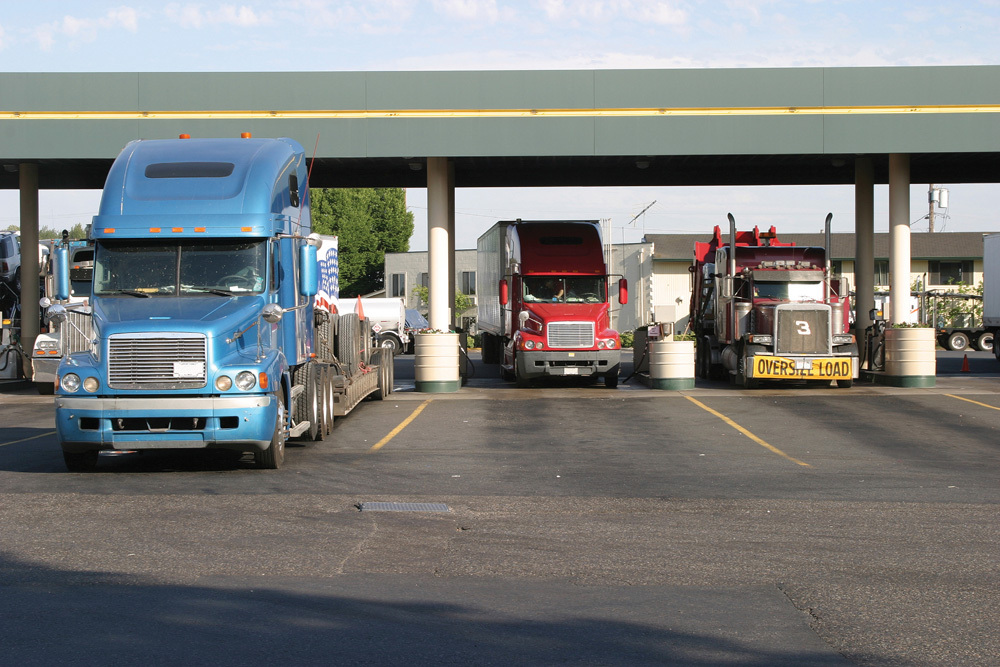Building Opportunity





July 18, 2012
BY Erin Voegele
Tax credits can be a powerful mechanism to help spur investment in biodiesel infrastructure while simultaneously creating much-needed opportunities for economic development and job creation. Energy legislation that aims to achieve those objectives became law in Florida in April. The biofuel tax credits contained in the law are modeled after those that were in effect within the state from 2006 through 2010.
The legislation, HB 7117, was sponsored by state Rep. Scott Plakon, who represents District 37 in Florida. According to Plakon, one reason he sponsored the bill is that he believes it will help improve Florida’s economic situation. “We are looking for various ways to encourage development by stimulating private investment and hiring,” he says, noting the bill will also help Florida diversify its fuel supplies.
Specifically, the bill provides a sales tax refund for materials used in the distribution of blends of B10 through neat B100, ethanol blends of E10-E100, and other renewable fuels produced with biomass feedstock and used to reduce consumption of fossil-based transportation fuels. A statewide cap of $1 million per year is placed on the incentive, which is scheduled to sunset on July 1, 2016.
The law also includes a renewable energy technologies investment tax credit. Under the initiative, 75 percent of all capital, operation, maintenance and research and development costs incurred between July 1, 2012, and June 30, 2016, in connection with an investment in production, storage and distribution of B10-B100, E10-E100 and other renewable fuels qualify for the tax credit. The law specifies eligible costs include those associated with constructing, installing and equipping these technologies within the state. The retrofit of fueling station pumps for B10-B100, E10-E100 and other renewable fuels qualify as an eligible cost. A cap of $1 million per year per taxpayer is set, with a $10 million per year cap for all taxpayers.
According to Plakon, the incentives represent a starting point and a baby step towards job creation and expanded use of renewable fuels. The hope is that they will give the market a nudge. Plakon notes that Florida Gov. Rick Scott is very performance-based. “We’ve instituted these policies and they are going to be monitored as we go to make sure things happen as intended,” Plakon says. “As time goes on, if the intended result is not accomplished, we can modify them as we go. This is just a baby step, and we hope we can build upon this in future years.”
Scott actually let the measure become law without signing the bill. “While I support many provisions of [the bill], I am concerned whether the taxpayers of Florida will receive a return on the targeted tax credits in the bill,” Scott said in a statement. “In deference to the support for those tax credits by Florida Commissioner of Agriculture Adam Putnam and the legislators who have worked on this legislation, [it] will become law without my signature.” Scott also noted that without clear documentation that the proposed tax credits have produced sufficient return or provided significant cost savings for the state’s taxpayers, he will request their repeal.
Advertisement
Plakon notes that the trend with the first inception of biofuel-related tax credits seemed to indicate growing interest in adding biofuel infrastructure within the state. “They weren’t used in the first few years, and in the last year they were fully subscribed,” he says. “It appears demand grew as time went on.”
Ned Bowman, executive director of the Florida Petroleum Marketers & Convenience Store Association, says the potential of the incentives could be tempered by low demand for biodiesel and other biofuels. “I think the credits may help some of our members, but for many it won’t make a difference,” he says. “They want to see demand for [biodiesel] before they make an investment. There has got to be demand in order for the market to pick it up and capture it.”
Current demand for biodiesel in Florida is pretty low, Bowman adds, noting there might be a couple of pockets of higher demand within the state. Orlando is one example. Retailers within the state are aware of the fuels and incentives, he says, but many are likely to be unwilling to make new infrastructure investments due to the state of the economy. “Our members are in business to make a profit,” Bowman says, “and if it’s not profitable, they’re not going to do it.”
Assuming demand for biodiesel increases and there is more interest from retailers in installing biofuel infrastructure, Bowman says he’d probably like to see a larger incentive in place, as upgrading piping, tanks and other equipment is an expensive endeavor. “Our members are individuals and they are entrepreneurs,” he says. “When they see an opportunity, they’ll take it, but it has to be market-driven.”
Shelby Neal, director of state governmental affairs at the National Biodiesel Board, offers a more positive take on the incentives. “Regardless of the type of economic development being discussed, financial incentives work in that they tend to bring about more of the desired activity and strengthen the businesses involved in the activity,” he says. “In the case of biodiesel, I think the results speak for themselves. Where meaningful production incentives exist, biodiesel production exists. Where meaningful consumption incentives exist, biodiesel consumption exists. It’s pretty simple, really.”
Advertisement
Addressing Algae
HB 7117 could also impact algae development and infrastructure projects, thereby affecting growth of algae biofuels within Florida. The law establishes new regulations regarding algae and cyanobacteria cultivation. Under the law, nonnative algae and cyanobacteria—including those that are genetically engineered—cannot be cultivated at a scale of more than two contiguous acres without a special permit. A permit is not required, however, to cultivate plants or groups of plants that, based on experiences or research data, do not pose a threat of being an invasive species. The plants grown without permit are specified to be those commonly grown in the state for human food consumption, commercial feed, feedstuffs, livestock forage, nursery stock, or silviculture.
As part of the law, each permit holder is to maintain a bond or certificate of deposit in the amount determined by the department for each growing location. The amount cannot be more than 150 percent of the estimated cost of removing and destroying the cultivated plants. It is also capped at $5,000 per acre, unless a higher amount is determined to be necessary to protect the public health, safety and welfare.
While Plakon notes he is generally philosophically inclined to deregulate rather than regulate, he says the permitting requirement was included in the legislation because the Florida Department of Agriculture had identified the release of nonnative or genetically altered algae and cyanobacteria as a potential problem. “We have to be prepared to deal with a potential release of these organisms into the environment,” he says.
Algal Biomass Organization Executive Director Mary Rosenthal says the regulations should relieve concerns of those who want to see the algae industry develop in a safe, responsible way. “It’s too soon to determine what effect Florida’s new requirements will have on algae investments in the state,” she says. “We hope it doesn’t place an unnecessary burden on the development of any current or future technologies for sustainable and renewable products from algae. ABO believes that existing regulations from the U.S. Federal Coordinated Framework for the Regulation of Biotechnology, combined with responsible local and state requirements, can provide the necessary comprehensive environmental protection.”
Rosenthal further notes that academic and private laboratories have been working with modified algae for more than 30 years. “As far as we know, no adverse environmental impacts have been tied to algae-based research and development,” she says. “As such, we applaud Florida’s efforts to work with the algae industry in finding ways to minimize potential regulatory burdens of this new law, including exploring appropriate exemptions where the environmental impact does not warrant increased scrutiny.”
Author: Erin Voegele
Associate Editor, Biodiesel Magazine
(701) 540-6986
evoegele@bbiinternational.com
Upcoming Events





